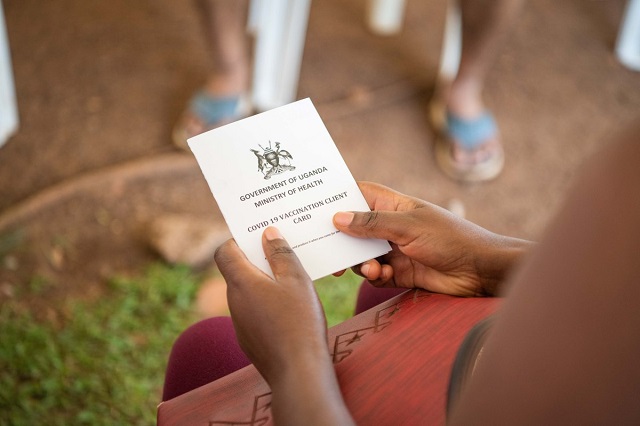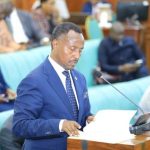A senior official of the African Union Commission on Tuesday urged European Union member countries against a policy of not accepting COVID-19 vaccine certificates from the continent.
Speaking at the opening of a meeting of foreign affairs ministers of the European Union and the African Union in the Rwandan capital, Kigali, Monique Nsanzabaganwa, the vice-chairperson of the African Union Commission indicated such a policy could affect vaccination campaigns.
Nsanzabaganwa noted important steps were achieved by “team Europe” in providing vaccines to the African continent through the COVAX facility and through bilateral initiatives.
“To support these vaccination efforts, the recognition by our European counterparts of vaccines and vaccination certificates issued by member states authorities in conformity with Africa CDC recommendations is pertinent,” the official said.
“This will allow our sister continents to be able to continue engaging productively particularly at the economic level,” she added.
Last month, the UK announced a policy of not accepting Covid-19 vaccine certificates from the continent which authorities say could increase vaccine hesitancy.
England announced its initial list of countries from which it recognizes vaccines, with none of them in Africa.
Nsanzabaganwa said the continent looks to “sister continent and member states’ support” in the ongoing appeal on waiver of intellectual property rights, related to COVID-19 vaccines and other technologies at the World Trade Organization.
She also emphasized on the importance of global supplies of vaccines to attain global immunity in the fight against the COVID-19 pandemic.
“This is critical to opening up across countries, global health security and global swift economic recovery. It would also be a distinct mark of global solidarity to fight a common enemy,” she said.
About 4.5 percent of the African population is fully vaccinated, well below the average of about 55 percent to 66 percent levels in Europe.
“The COVID-19 pandemic has been a wake-up call. It has put the finger on what works and what doesn’t work in today’s interconnected and interdependent world. It has accelerated the need to make our partnership fit for purpose,” said Josep Borrell, the European Union’s foreign policy chief.
Discussions at the ministerial meeting revolve on the response to and recovery from the COVID-19 pandemic as well as building resilience, peace, security, migration and mobility and global governance among others, according to the agenda.
Ahead of the sixth EU-AU Summit, which is scheduled to take place in Brussels in early 2022, the ministers are expected to identify the most important common priorities, opportunities and challenges for the agenda.
![]()




























